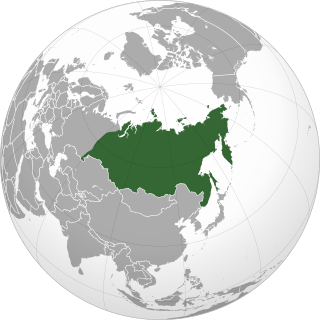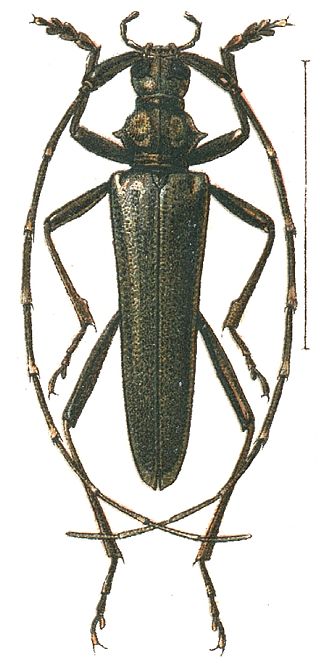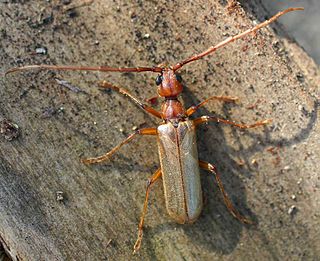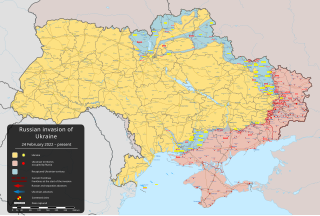
Kaliningrad Oblast is the westernmost federal subject of the Russian Federation, in Central and Eastern Europe. It is a semi-exclave situated on the Baltic Sea. The oblast is surrounded by two European Union and NATO members: Poland to the south and Lithuania to the north and east. The largest city and administrative centre of the province (oblast) is the city of Kaliningrad, formerly known as Königsberg. The port city of Baltiysk is Russia's only port on the Baltic Sea that remains ice-free in winter. Kaliningrad Oblast had a population of roughly 1 million in the Russian Census of 2021.

Russia, or the Russian Federation, is a country spanning Eastern Europe and North Asia. It is the largest country in the world by area, extending across eleven time zones and sharing land borders with fourteen countries. It is the world's ninth-most populous country and Europe's most populous country. Russia is a highly urbanized country consisting of 16 population centers with over million inhabitants. Its capital as well as its largest city is Moscow. Saint Petersburg is Russia's second-largest city and cultural capital.

Russian is an East Slavic language, spoken primarily in Russia. It is the native language of the Russians and belongs to the Indo-European language family. It is one of four living East Slavic languages, and is also a part of the larger Balto-Slavic languages. It was the de facto and de jure official language of the former Soviet Union. Russian has remained an official language in independent Russia, Belarus, Kazakhstan, Kyrgyzstan, and Tajikistan, and is still commonly used as a lingua franca in Ukraine, Moldova, the Caucasus, Central Asia, and to a lesser extent in the Baltic states and Israel.

Siberia is an extensive geographical region comprising all of North Asia, from the Ural Mountains in the west to the Pacific Ocean in the east. It has formed part of the sovereign territory of Russia and its predecessor states since the centuries-long conquest of Siberia, which began with the fall of the Khanate of Sibir in the late 16th century and concluded with the annexation of Chukotka in 1778. Siberia is vast and sparsely populated, covering an area of over 13.1 million square kilometres (5,100,000 sq mi), but home to roughly a quarter of Russia's population. Novosibirsk, Krasnoyarsk, and Omsk are the largest cities in the area.

Ukraine is a country in Eastern Europe. It is the second-largest European country after Russia, which borders it to the east and northeast. It also borders Belarus to the north; Poland, Slovakia, and Hungary to the west; and Romania and Moldova to the southwest; with a coastline along the Black Sea and the Sea of Azov to the south and southeast. Kyiv is the nation's capital and largest city, followed by Kharkiv, Dnipro and Odesa. Ukraine's official language is Ukrainian; Russian is also widely spoken, especially in the east and south.

The Russo-Japanese War was fought between the Japanese Empire and the Russian Empire during 1904 and 1905 over rival imperial ambitions in Manchuria and the Korean Empire. The major theatres of military operations were in the Liaodong Peninsula and Mukden in Southern Manchuria, the Yellow Sea and the Sea of Japan.
The Ukrainian language is an East Slavic language of the Indo-European language family spoken primarily in Ukraine. It is the native language of a majority of Ukrainians.

The Russians are an East Slavic ethnic group indigenous to Eastern Europe, who share a common Russian ancestry, culture, and history. Russian, the most spoken Slavic language, is the shared mother tongue of the Russians; Orthodox Christianity has been their majority religion since the formation of a Russian identity in the Middle Ages. They are the largest Slavic nation and the largest European nation.

The Russian Far East is a region in Northeast Asia. It is the easternmost part of Russia and the Asian continent; and is administered as a part of the Far Eastern Federal District, which is located between Lake Baikal in eastern Siberia and the Pacific Ocean. The area's largest city is Khabarovsk, followed by Vladivostok. The region shares land borders with the countries of Mongolia, China, and North Korea to its south, as well as maritime boundaries with Japan to its southeast, and with the United States along the Bering Strait to its northeast.

The longhorn beetles (Cerambycidae), also known as long-horned or longicorns, are a large family of beetles, with over 35,000 species described.

Moscow Time is the time zone for the city of Moscow, Russia, and most of western Russia, including Saint Petersburg. It is the second-westernmost of the eleven time zones of Russia. It has been set to UTC+03:00 without DST since 26 October 2014; before that date it had been set to UTC+04:00 year-round on 27 March 2011.

UTC+03:00 is an identifier for a time offset from UTC of +03:00. In areas using this time offset, the time is three hours later than the Coordinated Universal Time (UTC). Following the ISO 8601 standard, a time with this offset would be written as, for example, 2019-02-08T23:36:06+03:00.

Per Olof Christopher Aurivillius was a Swedish entomologist.

The Disteniidae are a small family of beetles in the superfamily Chrysomeloidea, traditionally treated as a group within the Cerambycidae.

The Vesperidae are a small family of beetles, normally classified within the family Cerambycidae, of heterogeneous aspect but all characterised by larval stages related to roots of herbaceous plants or trees

The Russian Empire, also known as Imperial Russia or simply Russia, was a vast realm that spanned most of northern Eurasia from its proclamation in November 1721 until its dissolution in March 1917. At its height in the late 19th century, it covered about 22,800,000 square kilometres (8,800,000 sq mi), roughly one-sixth of the world's landmass, making it the third-largest empire in history, surpassed only by the British and Mongol empires; it also held colonies in North America between 1799 and 1867. The empire's 1897 census, the only one it conducted, found a population of 125.6 million with considerable ethnic, linguistic, religious, and socioeconomic diversity.

Trachyderini is a tribe of long-horned beetles in the family Cerambycidae. There are at least 140 genera and 650 described species in Trachyderini.

Pogonocherus hispidulus, the greater thorn-tipped longhorn beetle, is a species of flat-faced longhorns beetle in the family Cerambycidae.

The Russo-Ukrainian War is an ongoing war between Russia and Ukraine, which began in February 2014. Following Ukraine's Revolution of Dignity, Russia occupied and annexed Crimea from Ukraine and supported pro-Russian separatists fighting the Ukrainian military in the Donbas war. The first eight years of conflict also included naval incidents, cyberwarfare, and heightened political tensions. In February 2022, Russia launched a full-scale invasion of Ukraine and began occupying more of the country.

On 24 February 2022, Russia invaded Ukraine in an escalation of the Russo-Ukrainian War that started in 2014. The invasion became the largest attack on a European country since World War II. It is estimated to have caused tens of thousands of Ukrainian civilian casualties and hundreds of thousands of military casualties. By June 2022, Russian troops occupied about 20% of Ukrainian territory. From a population of 41 million in January 2022, about 8 million Ukrainians had been internally displaced and more than 8.2 million had fled the country by April 2023, creating Europe's largest refugee crisis since World War II. Extensive environmental damage caused by the war, widely described as an ecocide, contributed to food crises worldwide.


















